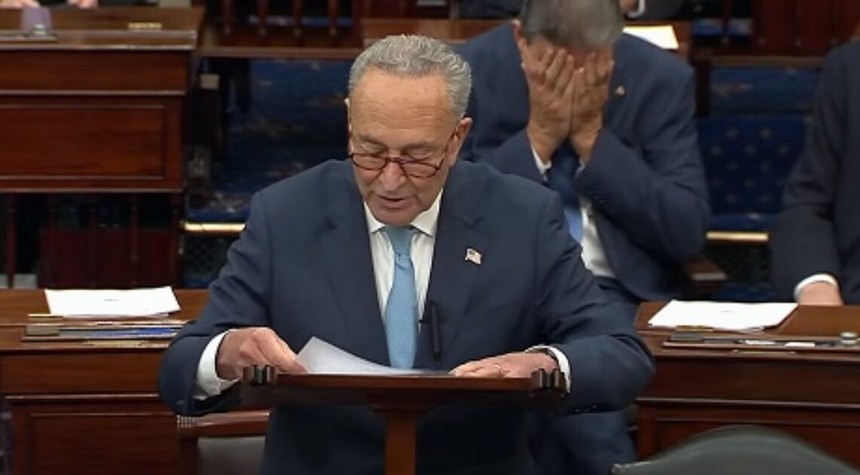
In 2018, when Justice Anthony Kennedy retired, Democrats went into full panic mode. As Kennedy was the key swing vote on the court, any nomination by Trump would likely result in a reliably conservative justice replacing him, moving the court to the right.
Democrats tried everything they could to force Trump to delay nominating Kennedy’s replacement. They claimed that Trump couldn’t nominate someone to the Supreme Court while he was “under investigation” for Russian collusion by Robert Mueller. They claimed that they needed more time to review documents, even though they had more time to review Kavanaugh’s record than the past three Supreme Court nominees.
They also claimed that Trump couldn’t nominate someone to the Supreme Court until after the 2018 midterms.
“Our Republican colleagues in the Senate should follow the rule they set in 2016 — not to consider a Supreme Court justice in an election year,” Sen. Chuck Schumer (D-N.Y.) said at the time. “Senator McConnell would tell anyone who listened that the Senate had the right to advise and consent. And that was every bit as important as the president’s right to nominate.”
He wasn’t alone.
“It’s absolute hypocrisy for the majority leader to move forward on a vote now when he wasn’t willing to move forward on a vote ahead of the 2016 election,” Sen. Chris Murphy (D-Conn.) said.
“There should be no consideration of a Supreme Court nominee until the American people have a chance to weigh in,” Sen. Dianne Feinstein, the top Democrat on the Senate Judiciary Committee, said at the time.
Another Senate Democrat who weighed in was Kamala Harris. “Given the stakes of this seat which will determine the fate of protected constitutional rights, the American people, who are set to vote in less than four months, deserve to have their voice heard. We should not vote on confirmation until they have voted at the ballot box,” Harris said in a statement.
McConnell had indeed refused to take up Barack Obama’s Supreme Court nominee, Merrick Garland, in 2016. But that wasn’t the Republican’s rule; it was actually Joe Biden’s. Back in June 1992, then-Senator Biden gave a speech arguing that, should a Supreme Court vacancy occur, a successor shouldn’t be picked until after the presidential election that November. “[I]t is my view that if a Supreme Court justice resigns tomorrow, or within the next several weeks, or resigns at the end of the summer, President Bush should consider following the practice of a majority of his predecessors and not — and not — name a nominee until after the November election is completed,” Biden said.
Of course, Biden wasn’t talking about a midterm election; he was talking about a presidential election and whether a president who might lose his election should potentially get to make a nomination to the Supreme Court before his fate was certain. Republicans cited the Biden Rule in 2016 to block Garland, but it didn’t apply to Kavanaugh in 2018.
Nonetheless, Schumer claimed the rule did apply to Kavanaugh when Republicans had the presidency and a majority in the Senate — as Democrats do now. In 2018, Democrats hoped to win back control of the U.S. Senate in the midterms and thus wanted Trump to wait until after the elections took place, to make it impossible for Trump to confirm someone they disapproved of.
Related: AOC’s Ugly Delegitimization of SCOTUS
Trump didn’t give a hoot about Schumer’s rule, but Schumer still tried to say Trump was obliged to follow it. Today, Joe Biden finds himself in the same circumstance as Trump was in 2018. Of course, Democrats only insisted on Trump following the “rule” because it was politically convenient for them at the time. But, if Democrats — who so passionately insisted that Trump needed to wait until after the midterms to nominate a replacement for Kennedy — don’t want to be hypocrites, they’d insist Biden wait until after the midterms as well.
But then, when have Democrats ever cared about being hypocrites?
No comments:
Post a Comment